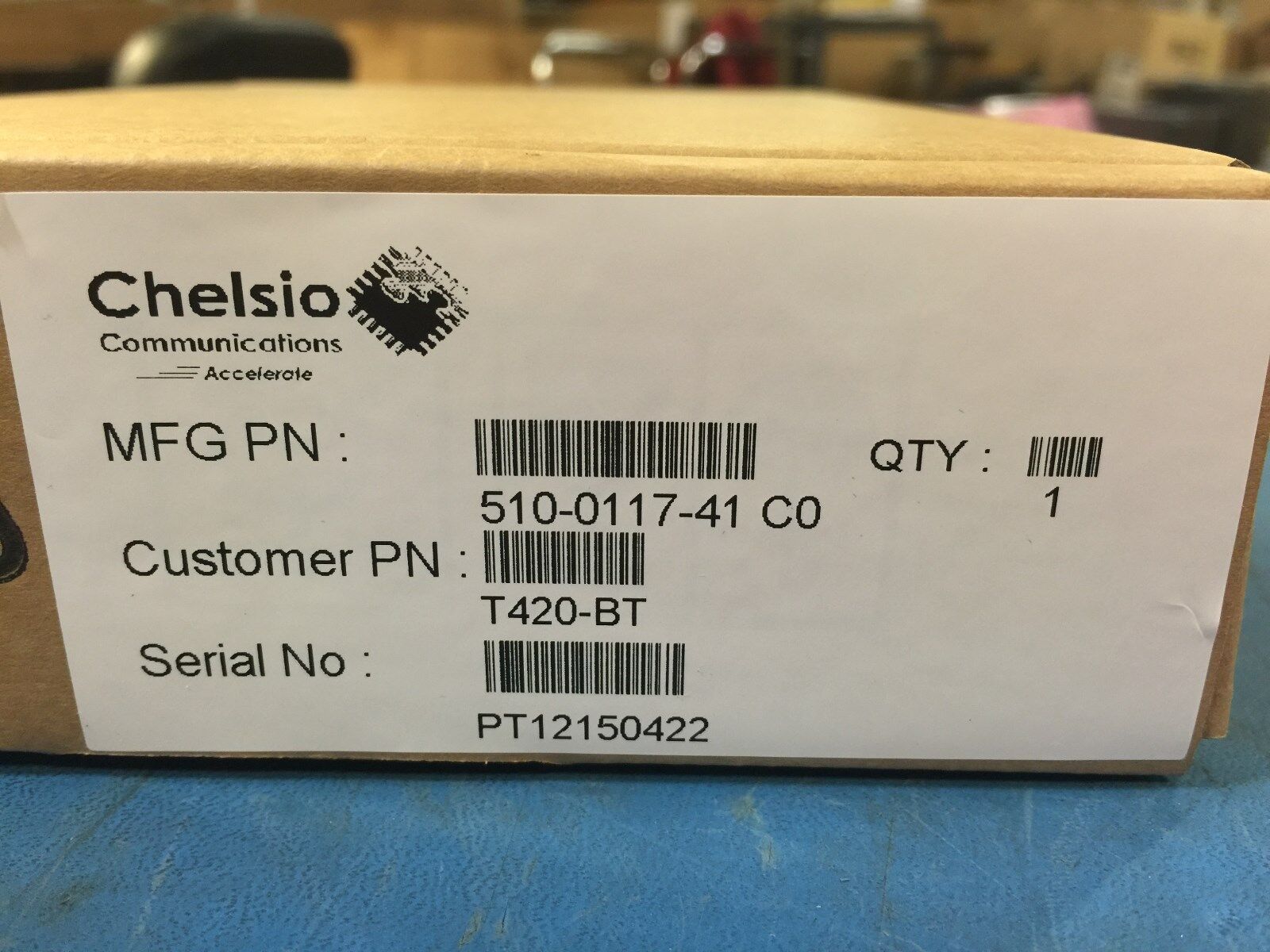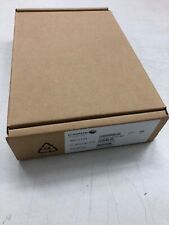*NEW* Chelsio T420-BT 10GBase-T Ethernet adapter, PCI Exp 2.0 Host Bus Interface For Sale

When you click on links to various merchants on this site and make a purchase, this can result in this site earning a commission. Affiliate programs and affiliations include, but are not limited to, the eBay Partner Network.
*NEW* Chelsio T420-BT 10GBase-T Ethernet adapter, PCI Exp 2.0 Host Bus Interface:
$112.49
*NEW* Chelsio T420-BT
P/N : 510-0117-41 CO
High Performance, Dual Port 10GbE Unified Wire Adapter. Enables TCP, UDP, iSCSI, iWARP, and FCoE Offload over Single Unified Wire with SR-IOV, EVB/VNTag, DCB
Chelsio’s T420-BT is a dual port 10GBase-T 10 Gigabit Ethernet Unified Wire adapter with PCI Express 2.0 host bus interface. It is capable of providing two 10GbE ports by using standard RJ-45 connectors with Twisted Pair Cat-6a cables. T420-BT is optimized for cloud computing, HPC, virtualization, storage, and other data center applications. The fourth-generation (T4) technology from Chelsio provides the highest 10GbE performance and dramatically lowers host system CPU communications overhead with on-board hardware that off-loads TCP/IP, iSCSI, FCoE and iWARP RDMA processing from its host system.

Related Items:
*NEW*Chelsio T420-BT 10GBase-T Ethernet adapter, PCI Exp 2.0 Host Bus Interface
$200.00
*NEW* Chelsio T420-BT 10GBase-T Ethernet adapter, PCI Exp 2.0 Host Bus Interface
$101.24
NEW Chelsio T440-LP-CR Fiber Optic Card
$400.00
![]()
Documentation
- AIX Local Security Checks
- Backdoors
- CentOS Local Security Checks
- CGI abuses
- CISCO
- Databases
- Debian Local Security Checks
- Default Unix Accounts
- Denial of Service
- Fedora Local Security Checks
- Finger abuses
- Firewalls
- FreeBSD Local Security Checks


